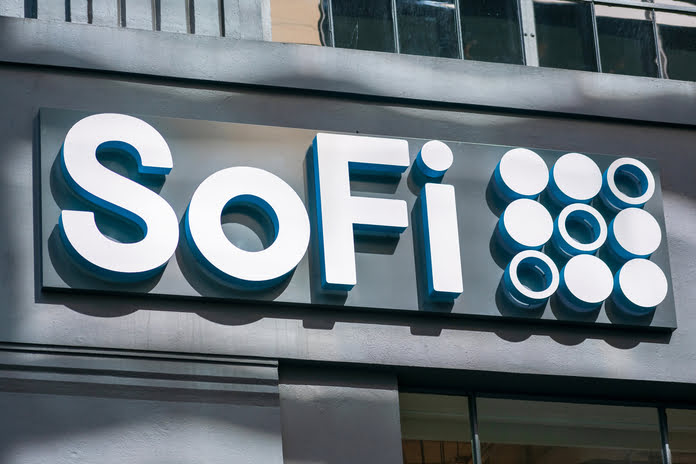Fintech firm SoFi Technologies (NASDAQ:SOFI) has garnered increasing attention from investors as the impending resumption of student loan repayments, which have been on hold since 2020, approaches in October. Originally initiated by former President Donald Trump in March 2020 and subsequently extended by President Joe Biden, this pause significantly impacted SoFi’s student loan refinancing business, leading to a decline in its fortunes. Notably, SoFi even took legal action against the Biden administration earlier this year over the repayment hiatus.
The financial community on Wall Street generally agrees that the restart of student loan repayments bodes well for SoFi. Bank of America analyst Mihir Bhatia recently stated that SoFi’s dominant position in the student loan refinance market positions it favorably to benefit from this development. Recent data suggests that SoFi’s market share in the student loan refinance sector has surged to 60%, up from 40% before the moratorium was enacted.
However, the resumption of student loan repayments is just one element of the bullish case for SoFi, which appears to be a compelling investment opportunity for other reasons.
SoFi’s journey into the public market began in 2021 when it went public through a reverse merger with one of Chamath Palihapitiya’s special purpose acquisition companies (SPACs). Like many other SPACs, SoFi’s stock price currently trades below its initial debut price of $10. While the SPAC frenzy has subsided since then, and some SPACs have struggled to meet their business forecasts, SoFi stands out as it has not only met but surpassed some of its initial performance parameters.
SoFi is a significant player in the fintech sector, offering a range of financial products that enable cross-selling opportunities within its growing user base. It also operates a bank, providing access to low-cost funds. In Q2 2023, half of SoFi’s loans were funded by its own deposits, and a continued increase in this figure is expected to support the expansion of its net interest margins (NIMs).
The company’s impressive growth is evident in its Q2 2023 results, where it added over 584,000 new members, reaching a total member count of 6.2 million, a 44% increase compared to the same quarter last year. The number of products on its platform has also soared, reaching 9.4 million, a 43% YoY increase.
While SoFi is currently reporting GAAP losses, it is optimistic about achieving GAAP profitability in Q4. Importantly, it has managed to grow its top line without compromising credit quality and profitability. During the Q2 earnings call, management emphasized that on-balance delinquency rates are lower than pre-COVID-19 pandemic levels.
As for the stock’s outlook, Wall Street analysts have a consensus rating of Hold for SoFi. Out of 16 analysts covering the stock, 5 rate it as a Strong Buy, 7 as a Hold, 1 as a Moderate Sell, and 3 as a Strong Sell. The stock’s mean target price of $9.86 suggests a potential upside of 15% from current levels.
SoFi’s stock is currently trading at a next-12-month price-to-sales multiple of 3.56x, which appears reasonable given its growth prospects. If the company can achieve sustained GAAP profitability, it may undergo a valuation rerating.
In summary, despite headwinds in the broader fintech sector, SoFi presents a compelling long-term investment opportunity, with the resumption of student loan repayments acting as a key short-term catalyst.
Featured Image: Megapixl















